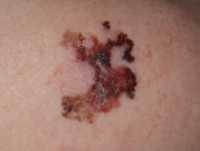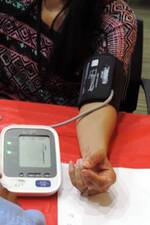Author Interviews, COVID -19 Coronavirus, Lancet / 12.04.2022
Myopericarditis After COVID-19 Vaccination
MedicalResearch.com Interview with:
Dr Kollengode Ramanathan MD
Cardiothoracic Intensive Care Unit
National University Heart Centre
National University Hospital
Singapore
MedicalResearch.com: What is the background for this study?
Response: Globally, more than 10 billion doses of COVID-19 vaccines have been administered as of March 2022. While most side-effects of the vaccine are mild and self-limiting, myopericarditis ( inflammation of the heart) is increasingly being reported after COVID-19 vaccination. Thus far it has only been linked only to smallpox vaccination. However, several studies have suggested that mRNA COVID-19 vaccines significantly increase the risk of myocarditis, particularly in males and in people aged 16-39 years. We reviewed the literature comparing the incidence of myopericarditis following COVID-19 and non-COVID-19 vaccination. (more…)




 Brett King, MD, PhD, FAAD
Associate Professor of Dermatology
Yale School of Medicine
MedicalResearch.com: What is the background for this study?
Response: Alopecia areata is an autoimmune disorder marked by disfiguring, non-scarring hair loss, and there are no therapies approved by the U.S. Food and Drug Administration for treatment of the disease. JAK inhibitors are showing promise for treatment of severe alopecia areata. In this work, the pooled results of two phase 3 clinical trials of the JAK inhibitor baricitinib were reported out to 52 weeks.
Brett King, MD, PhD, FAAD
Associate Professor of Dermatology
Yale School of Medicine
MedicalResearch.com: What is the background for this study?
Response: Alopecia areata is an autoimmune disorder marked by disfiguring, non-scarring hair loss, and there are no therapies approved by the U.S. Food and Drug Administration for treatment of the disease. JAK inhibitors are showing promise for treatment of severe alopecia areata. In this work, the pooled results of two phase 3 clinical trials of the JAK inhibitor baricitinib were reported out to 52 weeks.

























 Arman A. Shahriar
Medical Student, University of Minnesota Medical School Research
Consultant, HealthPartners Institute
Minneapolis, Minnesota
Arman A. Shahriar
Medical Student, University of Minnesota Medical School Research
Consultant, HealthPartners Institute
Minneapolis, Minnesota
